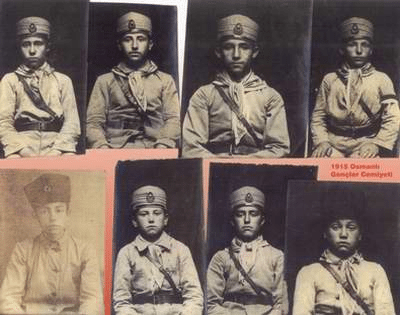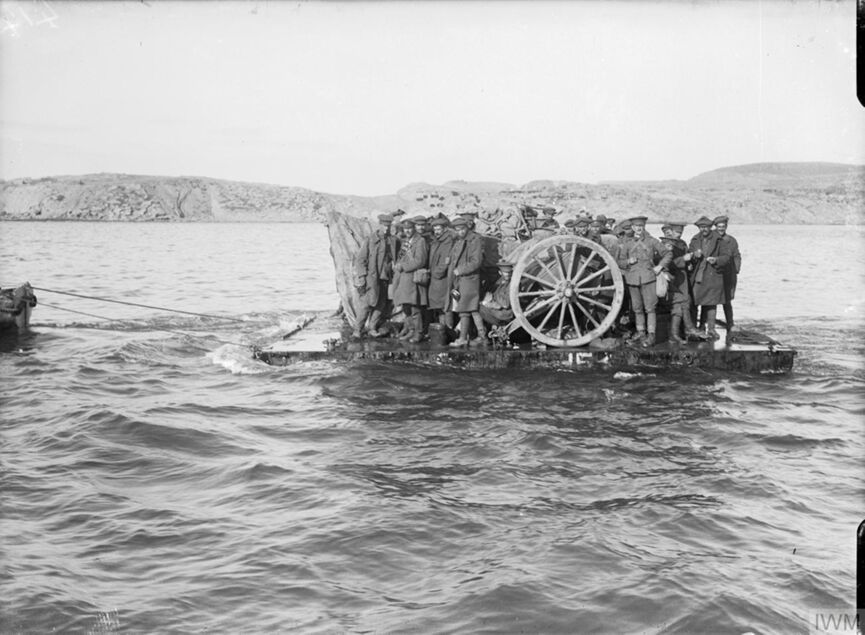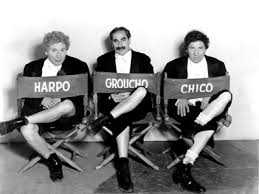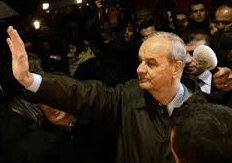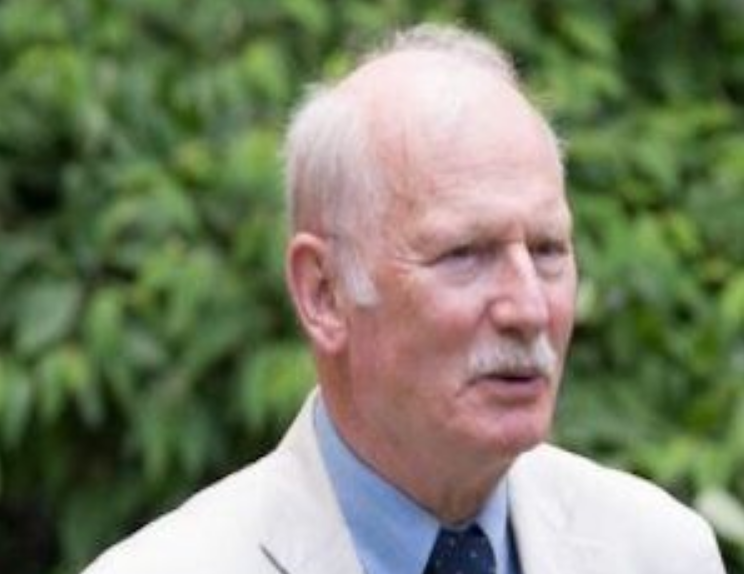Osman Hamdi Bey (1842 – 24 February 1910) was an Ottoman statesman, intellectual, art expert and also a prominent and pioneering Turkish painter.
Mihrap is Osman Hamdi’s famous painting since the original painting is lost. Nobody knows where .
Mihrap is the place in mosques where the Imam lead muslim when they perform namaz pray.
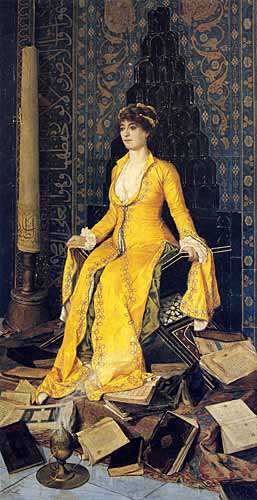
Osman Hamdi Bey has always represented the Orient in a more dignified, respectful, accurate, and personal way, resulting in a major difference with his western counterparts, whose art sought to create an exotic, erotic, violent and timeless representation of the East.
Famous Mihrab, depicting a woman sitting rather stiffly in a bright yellow décolleté dress on a Koran lectern, her back to a highly ornate tiled mihrab . At her feet, a dozen large books, all manuscripts, lay strewn on the floor, while a thin smoke rises from a gilt brass incense burner. This is, no doubt, one of Osman Hamdi Bey’s most enigmatic paintings, which has provoked a number of speculative interpretations about its possible meaning(s). Interestingly, however, Wendy Shaw’s ( Bern University-Germany-Art History Faculty member) take on this work
is specifically geared towards her concerns: museums, heritage, and nation building.
Obviously Shaw has a very specific reading of the painting: what counted most were the artifacts and the setting as illustrations of the painter’s concern with heritage, and the sublimation of a female image as a symbol of secularism and as a national metaphor. For most other interpreters of this image, the emphasis was much more specifically on the blasphemous and “feminist” message the painting conveyed. Holy books thrown all over the floor, trampled by a woman in a bright yellow décolleté dress, sitting on the very stand that should be de
voted to holding the Quran, and turning her back to a prayer niche: it is probably difficult to imagine a more offensive way of attacking the very foundations of Islamic tradition in the name of promoting female independence and autonomy.
The artist was 59 years old when he completed this work and his wife Naile Hanım was 45 years old. The work, dated 1901, is in a way greeting the 20th century, where “the importance of women” increased enormously. The woman in the picture is quite young and this makes us assume that Osman Hamdi might have used an old picture while drawing the figure. The single candlestick and its huge candle makes the viewer think about Freudian sexual interpretations and in the foreground the incense box scattering fumes symbolizes the opposite pole of spiritualism. The artist seeking the “secret of life” in books in many of his works now seems to have decided that the thing that gives meaning to life are “women and what they symbolize”… The dark stain of the altar’s niche continues with the dark tones of the volumes at the bottom and of the carpet, then the orange/yellow dress of the woman shows her pink-white flesh, the white stain of a single candle on the left and the different shades of white in the open pages of the books balance each other.
Perhaps a good way to start would be to look back at what Osman Hamdi’s biographer cum hagiographer, Mustafa Cezar, had to say about this particular painting:
It seems that with this interesting painting, the most meaningful and intriguing of all his works, Osman Hamdi Bey, by placing a young woman in the midst of objects of great value to mankind, wanted to symbolize the privileged status of love and affection. As to the incense burner and its smoke, they indicate the warmth of these feelings and by pointing in their direction they give greater clarity to the painting’s meaning.
Apart from having been treated with a rather bold symbolism for its time, this painting reveals the artist’s tolerant attitude toward religious matters; however we have not been able to determine what name Hamdi Bey had given it. All we have been able to discover, thanks to one of his grandsons, Cemal Bark,16 is that the model who sat for this painting was the daughter of an Armenian housemaid.
This painting, which tries to explain the most powerful feeling shared by all mankind, and, from the perspective of men, the place of women in the world of the sublime at the center of these feelings, we have chosen to name Mihrab.
In doing so, we have taken into consideration the fact that mihrab means “the eyebrows of the beloved” and “the abode of hope,” but our readers will perhaps find a more appropriate name for it.
Cezar’s commentary on the painting may not be of great clarity or quality, but the reference to its christening by the author is a precious admission of how these things were done, down to the bewildering suggestion that someone else might come up with a better name and replace the former one. It appears, then, that the entire art historical community has been content with (in most cases, probably unwittingly) taking for granted a name that was coined in the early 1970s by one of their colleagues. Cezar may have truly had difficulty accessing the sources that would have revealed the “real” name of the painting, but that is no longer the case today. The most basic research will soon reveal that this painting was exhibited for the first time in London, in May 1903, at the Royal Academy Exhibition under entry number 135. Its name had nothing to do with the tiled mihrab in the background: the painting was called La Genèse, in French, or in other words Genesis.18 This, I think, puts an end to the speculation surrounding the question of whether the woman depicted in this painting was pregnant or not. Nor is Genesis the kind of name that might have been imposed by the organizers or anybody other than Osman Hamdi Bey himself; it is clear, then, that his intention was to organize the whole scene around the central character of a young pregnant woman.
Who could that woman have been? The idea that he would have ‘retrospectively’ painted his wife’s latest pregnancy, almost ten years earlier, is not very convincing; and it is all the less so when one considers that the woman bears little, if any, resemblance with his wife Marie/Naile. The suggestion that he might have painted the maid’s daughter is tempting, if only because it is reported by a family member, albeit born ten years after the painting. Yet, then again, this does not look like a common practice for a painter who is known to have almost exclusively used himself and family members as models. It seems, therefore, that one should look a little bit closer at Osman Hamdi’s close relatives, in the hope of finding a young (and preferably pregnant) woman who might fit the role. Indeed, there is one very good candidate: his own daughter, Leyla, born in or around 1880, and who would give birth to her first child, a little girl by the name of Nimet, on 1 May, 1902. It is more than likely, then, that the young woman in a bright yellow dress with a slight potbelly was no other than his daughter, whom he had chosen to glorify in a highly symbolic painting.
Interestingly, however, and despite our present-day conviction that the painting was of a shocking and revolutionary nature, contemporaries seem to have been much less impressed. The Academy Notes had not much to say, except for a very descriptive comment of the scene depicted:
In yellow-lemon Oriental robe, sitting upright in an x-shaped seat on a dais. Behind her is a blue tiled Cairene wall-background; a censer and a number of Arabic books are scattered at the feet.19
Surprisingly, every detail was mentioned, but there seemed to be absolutely no consciousness of the possible implications of the setting and props: the robe, generally considered to be western by Turkish scholars, was labeled as Oriental; the Quran stand had become an x-shaped seat, the mihrab a “blue tiled Cairene wall,” and the books were simply qualified as “Arabic.” Apparently even less impressed, and probably inspired by the woman’s rather stiff posture, Punch also took notice of the painting, calling it “the Genesis of Aunt Sally,” with reference to the target doll in a pub throwing game.20
Was the British public too blasé to pay attention to the implications of this image? Were they just oblivious of the meanings we now ascribe to the many symbols it put forward? Or was the painting just not powerful enough to attract the attention of viewers in the midst of hundreds of other works of art? There may be some truth to all of the above, but we do know of at least one comment that did consider the painting to be “startling.” The problem, however, is that the astonishment was due to rather different reasons, and had to be contextualized within the larger framework of a comparison between western and eastern art. What triggered this comment was the “lifelessness” and “lack of emotion” displayed by the otherwise skilled “Monsieur Lybaert, of Ghent,” another artist at the exhibition.21 That was when Osman Hamdi’s Genesis came in, almost as the antithesis of the Belgian artist’s work.
Compare with this the startling “Genèse” of the Turkish painter, Osman Hamdy Bey, of Constantinople—a surprising work to come from a Turk, and still more surprising as a picture accepted by the Academy. A woman of some depravity of air, clad in violent yellow, sits high against a powerful blue-tiled background, and around her is strewn a number of Persian books flung, half destroyed, upon the ground. But after a moment’s contemplation the shock suffered by the spectator appears to pass away, and we are enabled to appreciate the skill displayed in the qualities of tones within the violence of tint. How colourless must our Western tints appear to M. Hamdy’s Eastern sun-tried eyes! Even Mr. MacBeth’s vigorous “Pirate’s Wife,” virile in colour and handling, yet instinctively refined and artistic in arrangement, may strike as tame the painter of the Orient; and the “Flower of Wifely Patience,” the graceful Grissel, or Mr. Joy, with its graceful lines and delicate flesh, must appear a vision of another and a sadly weakly world.22
The surprise did not come from the subject treated, and none of the religious references seemed to have been perceived by the critic. Instead, the shock was due to the woman’s “depravity” and, most of all, to the violence of the colors and contrasts, which were attributed to an Oriental taste, the rawness of which was thought to be particularly appealing to a western audience tired of the blandness of its own art. Three years later, when Osman Hamdi was proposed — together with
Auguste Rodin — as a possible foreign member of the Academy, he was remembered as “Osmond (sic) Hamdy, the Turk, whose strange ‘La Genèse’ was on the line in Gallery III, at the 1903 Academy.”23
Interestingly, there seems to be a certain consistency in the way Osman Hamdi’s paintings were received in the West. Generally speaking, there was always a more or less explicit emphasis on the fact that he was a “Turk,” i.e. a Muslim, and therefore someone whose inclination and talent should be considered with a blend of curiosity and admiration. When it came to the artistic nature of his work, however, most of the critics agreed on the importance of the combined effect of color, detail, and a form of knowledge that was assumed to be inherent to his identity as an Oriental. This is what comes out of the Genesis commentary, and will be followed by similar arguments in practically every one of the rare reviews he got for his later paintings.
PS : Source: Edhem Eldem,Bosphorus University, Istanbul ” Osman Hamdi Bey’s Genesis”
Cezar 1971, 324. 18 The Academy Notes 1903, 15; “The Royal Academy” 1903; Graves 1905, 364.
The Academy Notes 1903, 15. 20 Lemon et al. 1903, 322.
Théophile Lybaert (1848-1927) had exhibited a painting named Life’s Frailty (Graves 1905 5: 119. 22 “The Royal Academy,” 1903.
/
